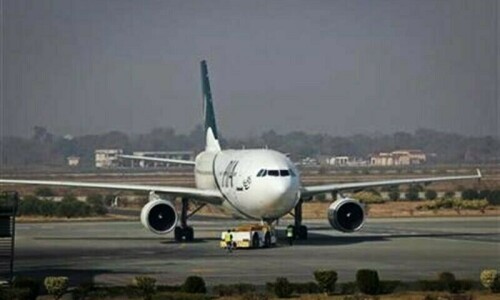MANAMA, March 24: Inflation in the oil-rich Gulf Cooperation Council is set to rise to about seven per cent in 2008, compared with an earlier forecast of six per cent, the International Monetary Fund said on Monday.
“Overall inflationary pressures in 2008 are expected to increase to about seven per cent on average,” Gene Leon, deputy chief of the IMF’s Middle East and Central Asia section, told a forum in Bahrain.
The IMF had earlier forecast overall inflation in the six GCC countries to be six per cent in 2008.
The IMF had expected inflation in Qatar and the United Arab Emirates to ease to around 12 per cent and eight per cent respectively in 2007.
Inflation was expected to ease further in Qatar and the UAE to 10 per cent and 6.4 per cent respectively.
But on Monday, the figures provided by Leon showed that inflation in Qatar surged to around 14 per cent in 2007 while consumer prices in the UAE were estimated to have risen by around 11 per cent.
The IMF also showed inflation in 2007 rising by more than 4.1 per cent in Saudi Arabia the largest economy in the Middle East which has reportedly been battling with inflation of more than seven per cent this year.
Inflation in Saudi Arabia has been traditionally low, unlike neighbouring Qatar and the UAE.
Among the other GCC states, inflation increased by around 5.5 per cent in Oman in 2007, more than five per cent in Kuwait and more than four per cent in Bahrain, according to the IMF.
GCC members have been enjoying windfall revenues on the back of record oil prices.
“I would not say the picture is dismal, moving from a projection of six to seven per cent... There is little more inflation than we thought,” Leon told AFP on the sidelines of the forum, attended by regional business leaders.
According to Leon, housing costs in an ever expanding market contributed to about 67 per cent of inflation in Qatar and dominated inflation factors in the UAE.
The surge in oil revenues has seen the GCC economies enjoy impressive growth rates but has also left them awash with cash.
Leon said Gulf governments must curb current expenditure in order to control inflation.
“When we say reduce expenditure, we think more of containing the current expenditure,” he told AFP. “At the same time, there is room to reduce the pace at which capital investment is taking place to help contain inflation.”
Among the external factors fuelling GCC inflation Leon highlighted rising world prices for food, capital equipment and raw materials, as well as the depreciation of the US dollar to which all GCC currencies, except the Kuwaiti dinar, are pegged.
But Leon stuck to the IMF’s argument that depegging GCC currencies from the weakening greenback, or a revaluation of those currencies vis-à-vis the dollar, would have a limited effect in the long term.
“It is not the most significant cause and we think there are other more effective ways of solving the problem,” he said.—AFP














































Dear visitor, the comments section is undergoing an overhaul and will return soon.